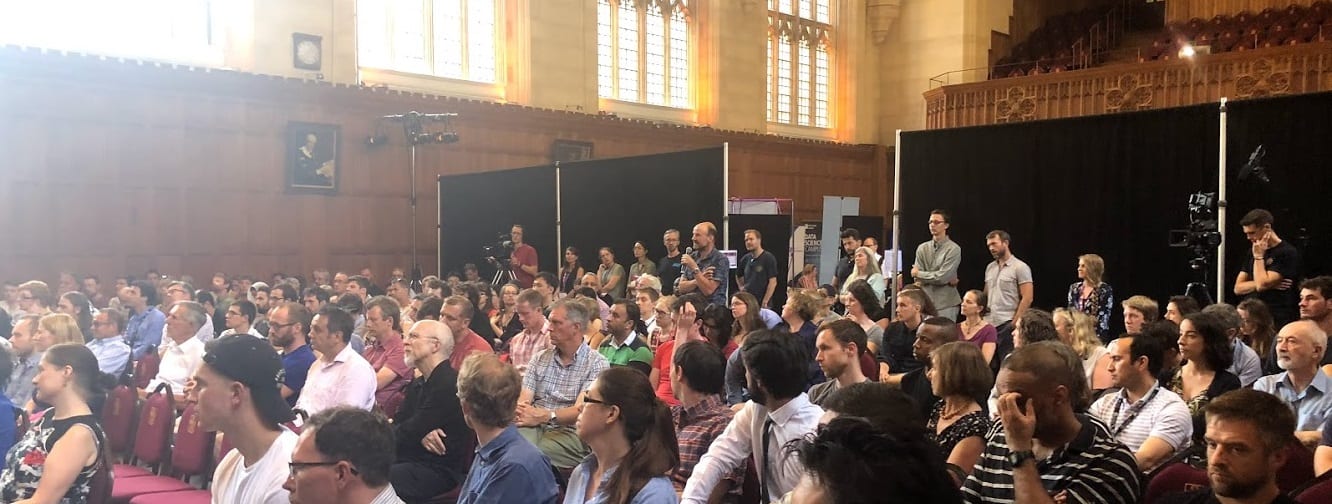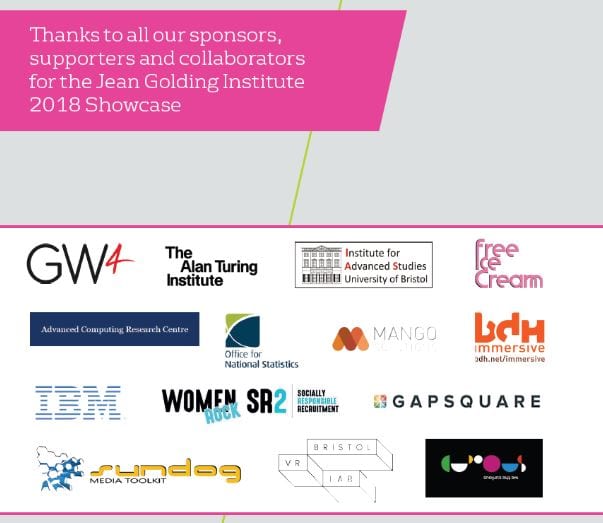On 3rd July the Jean Golding Institute invited hundreds of guests from academia, public and industry sectors, as well as the community to come and join this inaugural showcase event hosted in the historic Wills Memorial Building at the University of Bristol.
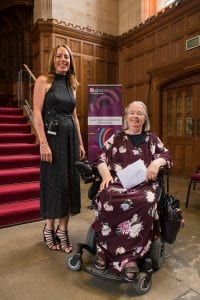
The event was a manifestation of the outputs of two years of work since the Institute inception in 2016. The showcase set out to celebrate the work and achievements of the JGI community who are working towards creating an environment where novel data-intensive research areas are explored and developed, and interdisciplinary exchanges promote a spirit of collaboration.
We held a series of talks throughout the day as well as keynote speeches that reflected the advances of data science and the impact in society. We heard from current and previous directors of the Institute, project leads and were pleased to welcome a number of external collaborators to talk, including those from the Office for National Statistics and from Cardiff University.
At the Jean Golding Institute, we take inspiration from the pioneering work of Jean Golding, who broke down barriers between research domains and created integrated multidisciplinary teams with a shared vision. We were privileged to be joined by Jean who talked about her earlier experiences using a ‘punched card system’ for data processing. Jean said, “I have always loved, and been intrigued by data, and to have my name attached to an Institute that has the important remit of developing and illustrating ways in which data can be manipulated and analysed is a great honour.” Jean is the founder of ‘Children of the 90s’ (ALSPAC), one of the best characterised longitudinal cohorts in the world.
A wide variety of projects and data competitions which use data driven solutions to society challenges were displayed in our exhibition area. Many of these projects were supported by our annual JGI seed corn funding scheme and we felt immensely proud to have sponsored them and watch them as they mature and become independently sustainable.
The showcase included interactive experiences like our first virtual reality project exploring the ‘Secrets of Brain Health’. This is a collaboration between researchers in the Clinical Research and Imaging Centre (CRIC) and BDH Immersive. We also showcased a collaboration between MRC IEU and the company Free Ice Cream, who have produced a game engine that allows individuals to explore and interact with the complex network of human health conditions and disorders.
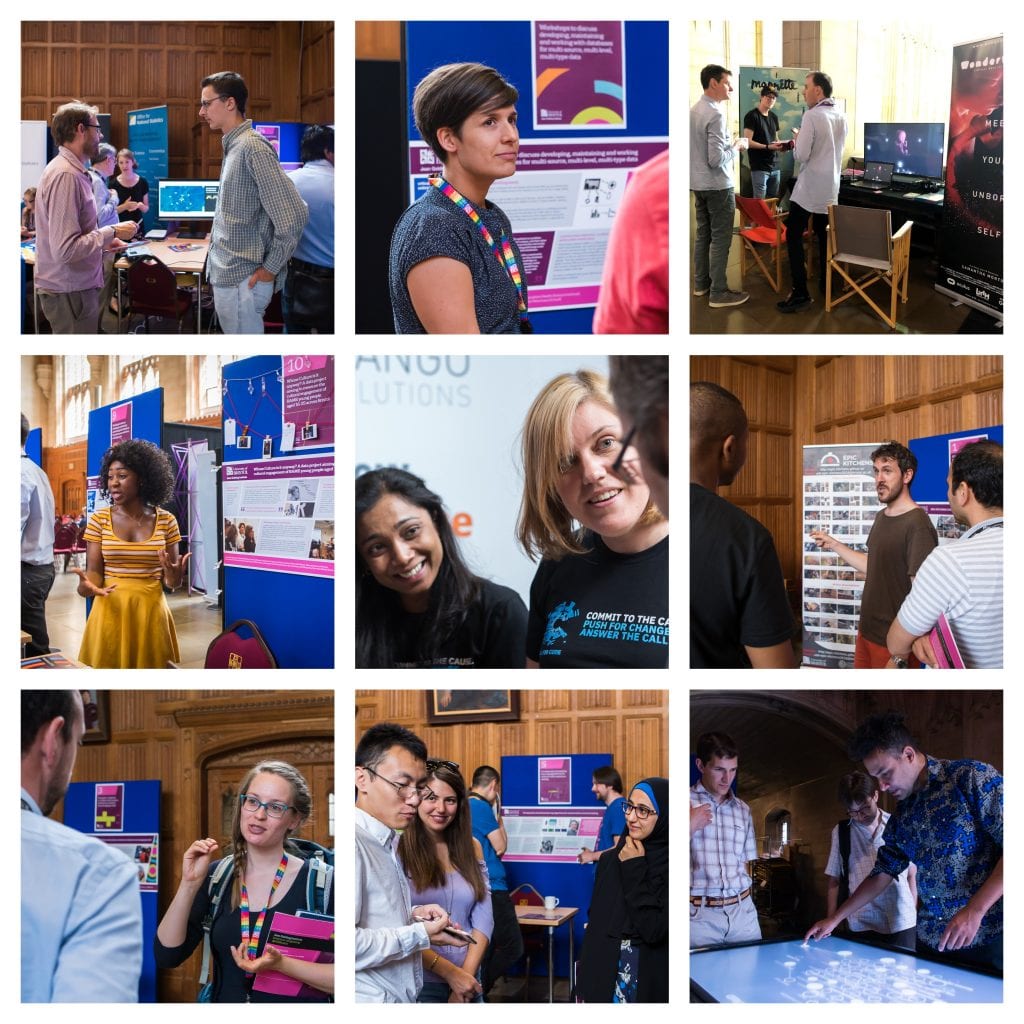 Two world-renowned data scientists Trevor Hastie, Professor of Statistics at Stanford University and Dan Crichton, Principal Investigator at NASA Jet Propulsion Labs were a focal part of our event.
Two world-renowned data scientists Trevor Hastie, Professor of Statistics at Stanford University and Dan Crichton, Principal Investigator at NASA Jet Propulsion Labs were a focal part of our event.
In his keynote talk, Dan described challenges that researchers at NASA are facing, which he considers apply universally: management of large, complex, distributed data sets and an effective exploration of such data to generate new knowledge. Dan proposed that these challenges “originate the need for a new scientific methodology”.
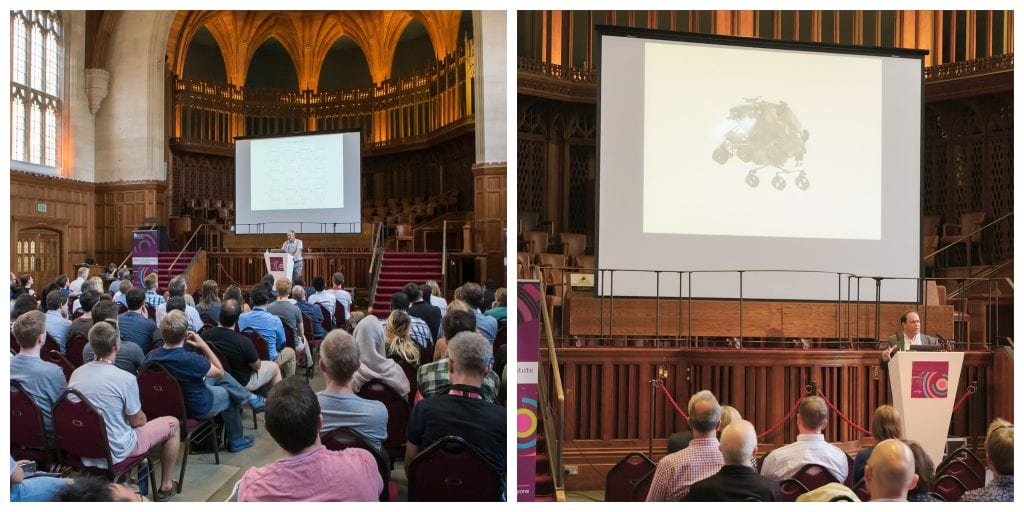
Trevor’s talk focused on supervised learning and building models from data that predict an outcome using a collection of input features. The current challenge of big data is that the analysis starts with big datasets with many features and the experts use machine learning algorithms to determine the key features. Big data also varies in shape, and this calls for different approaches. Trevor advised researchers to think outside the box! How much accuracy is needed? How about timelines? And encouraged analysis on subsets of data if possible. Finally, he described new methodologies using programming languages such as R for statistical computing. Both Trevor and Dan’s presentations will be available on the JGI website over the summer.

Prof Hugh Brady, Vice-Chancellor and President of the University of Bristol closed the showcase with “the Jean Golding Institute is at the centre of a momentous transformation at the University, since its inception the JGI has become a hub for data science, it has built new networks and extended existing ones, both within the University and between local and national organisations. The Jean Golding Institute will serve as a conduit between the ATI, the University and external partners and will play a key role in tackling some our most pressing global issues including urban analytics, security and health”.
We would like to say a big thank you to everyone involved in our first showcase and those that sponsored our big day. The atmosphere was one of collaboration and optimism for the future, and since joining the Alan Turing Institute (ATI), Bristol has great opportunities to lead the advancements of data science and artificial intelligence in the UK as part of this prestigious consortium.
Blog written by Patty Holley, Manager and Liz Green, Coordinator, Jean Golding Institute


